How to manage online complaints
This is one part in a series of articles about customer relations, like this one here about dealing with angry customers.

No-one enjoys dealing with customer complaints, in fact at my old workplace I suggested putting setting up Twisted Sister’s “We’re not gonna take it” as the hold music for the returns department. People can sometimes simply be obnoxious, but in an online world how you respond can speak worlds…and even more if you fail to respond!
Ok! Let’s get our head in the right space for this – Take a few deep breaths and remember that a bad review is inevitable at some stage and doesn’t mean that you or your service are bad! How you deal with it from here defines both you and your business! This is why we pre-emptively have systems and policies in place, so put on your adult pants and let’s deal with it right now.
There are two things you should do with a bad review, and it’s not hide them or get them removed! Just flip it, turn it to a good outcome or simply drown it out with a million other good reviews.
The Truth
As much as they can hurt, bad reviews can genuinely be good for you and your business – depending on the heart and driver. The other side of the coin is that as your business grows, you’re going to experience more of them!
Let’s break this down into three parts
- You are not in this on your own, but you do need to own it
- How to respond
- ABC’s of what to do next
You are not in this on your own, but you do need to own it
As a valued member of the ACRI Network you are part of a community that has the resources to help! Whatever you’re going through, chances are we’ve either been there or seen it before – but we can’t help you if you don’t include us in your processes.
Be aware of pride. Pride can be a thorn in your side when it comes to customer service. There’s an old saying that the bigger they are, the harder they fall and with pride it has a two-fold edge. It can make you careless with your preparation for complaints because you think you’ll never get a complaint, or it can make you look for somewhere to point the blame and not ask for help when something goes wrong. Pride is the enemy of all customer service transactions – nip it in the bud whenever it rears its ugly head.
One of the advantages of being a network member is that we’ll go into bat for you every time. We’ve been doing it for 15 years and we aren’t going to stop now, in fact we are getting more and more refined as the years go on! The earlier you notify us, even if it’s by email, the better it looks for you if your client’s concerns escalate. Generally, it’s a good idea if you are in conversation with your client (not a fb post) to let them know that you will “report the information to the ACRI Network” just simply so that they are aware. Your client will be thankful because at the very least, they will feel as though their due diligence is done because someone is going to be able to review and discuss their concerns.
There is also a handy tool you can use on the ACRI website called a “Consumer Feedback” form that you can refer your client to. This form is carefully worded to convey to your client 3 primary things.
- The ACRI Network Members (you) are incredibly particular, well trained and have the client’s best interest at heart. We do this line of work because of a passion.
- Reassure the client we will follow them up, their concern will be promptly addressed and they are important.
- That these types of enquiries are serious, so they need to be completely genuine and forthright with the details they provide – The way it’s worded is that someone’s employment may actually be in jeopardy as a result of their enquiry.
We’ve found this approach has cut out a great deal of the “fluffy” enquiries with no substance – which we receive more often than you would believe. In fact, we been able to filter most of these “fluffy” enquiries even prior to the member knowing about it – Who knows how many of these could have needlessly ended up on Facebook that are emotionally driven, with no fact!
The main thing to remember is not to pretend the issue wasn’t raised or ignore it until it snowballs but to take ownership and seek out ‘the why’. After all, for every single complaint voiced there is likely 26 other customers who aren’t telling you – even if the complaint isn’t rightfully genuine, just by dealing with it you may get an epiphany that isolates it from happening again.
How to respond
Respond as soon as possible…like now! Think carefully about your response, but DO NOT DELAY – it doesn’t go to the backburner because you have a busy day ahead. It needs to be dealt with now. The reason is 2 fold, like a weed – the younger you rip it out, the less damage it will do to the surrounding fruitful plants. The other thing to be aware of is that time is important, your other potential clients will see how quickly, and seriously you address issues – forever. Would you want to trust the safety of your bubby with someone who delays addressing things?
Do not blame anyone! No-one! Not even if they are at fault. You are not on a warpath; you are not a politician. Don’t even bite if the client tries to blame you, take control of that pride because you can be so wrong about being right. In other words, you don’t want to be that person. In this industry, from our experience, it probably isn’t actually your fault but a lack of communication…which is now your fault.
If possible, see if you can get in contact with the client directly off social media (anyone can screenshot anything) and this way, through simple old-fashioned dialogue, you will probably find a solution not only for your client, but also for you to implement in the future to either prevent this issue from arising or streamlining a process on how to deal with it. Also don’t forget that if you are struggling to find a solution then it’s ok to ask the customer what you can do to make this right and you don’t like their response you aren’t contractually obligated to do it – but they may just have an out of the box suggestion that will set you apart.
On the other hand, some clients are expecting you to do things you simply can’t – like turning a seat to forward facing before bubs even hit’s the marker! Don’t be scared to communicate even what you can’t do. This needs to be done with respect, but sometimes your client simply doesn’t understand best practice guidelines and the reasons behind them. If this is the case then don’t be scared to articulate your reasoning succinctly – keep it short and sweet. You’ll also find other potential customers will come to your defence, filling in any gaps. After you’ve communicated what you potentially can’t do for your client, you now have a ripe opportunity to tell them what you can do to fix how they are feeling – if you go above and beyond at this point you turn into the hero! In some cases it’s also ok to have a sense of humour – even encouraged if you have a taste for being sensitively scintillating. This never means putting anyone down, quite the opposite actually – a cleverly worded response can alleviate some of the pressure.
- Respond quickly
- Don’t get defensive, or finger point. It’s wrong and no one likes it
- Be genuine and understanding. Even in your apology
- Take it seriously, and use wording portrays to the client you are taking it seriously
- Don’t be afraid to ask the customer what can fix it
- Be tactful, remember other people are watching
- Communicate even what you can’t do
- Compensate them in some way
ABC’s of what to do next
A = Analyse your business processes. Is there anything that can be improved?
B = Bring on those improvements immediately, while they are fresh in your mind
C = Confirm these changes with your client after you’ve made them. If you’ve been able to maintain your communication with your client throughout this process, then they will be incredibly appreciative of any changes you’ve brought through. In fact, they will feel like they’ve been an integral part of instigating these improvements and will feel a sense of ownership for them. You can bet money (because that’s what you’ve invested when spending time on this) that they will tout your praises whenever your name comes up in conversation amongst their friendship groups. Not only that but your initiative to change is an incredible marketing tool that could be publicised on the very medium that the complaint came through! That will win you some extra love from your clients if they see you reply to the complaint with the improvements you’ve brought in. Now is a great time to remind you that prevention is the best cure.
Here is the bottom line – Complaints can be the most challenging parts of any industry, whether it be government or private, but handled correctly a complainant can be turned into one of your biggest advocates!
NB: This site contains information intended only for the person on the ACRI membership list and is subject to legal privilege. Any duplication or copy, even in segments, infringes on copyright

